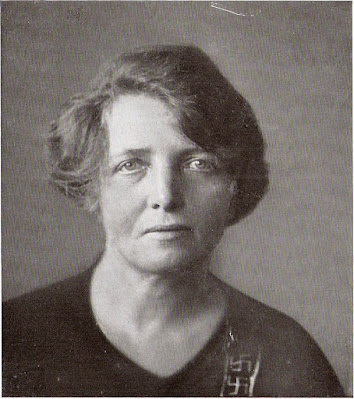Scientific Nordic Paganism - Table of Contents

by Vincent Bruno Vincent.Bruno.1229@gmail.com Mathilde Ludendorff Founder of Bund für Gotteserkenntnis (Society for the Knowledge of God) Psychiatrist, philosopher, anti-Christian, anti-Freemason, anti-Jewish, anti-occult, Nordic pagan racialist Most of Mathilde Ludendorff's writings are in German and are rare, please help me purchase them and translate them into English. Donate: https://www.patreon.com/VincentBruno This page is dedicated to compiling and expounding upon the philosophy of Psychiatrist Mathilde Ludendorff, the wife of Erich Ludendorff, the early close associate of Adolph Hiter. Mathilde founded the Society for the Knowledge of God which sought to create a purely Germanic scientific pagan religion free from not only Christianity but much of nonsensical occultism and theosophy, including Hinduism. She was extremely anti-Jewish, anti-Catholic, anti-Freemason, anti-Communist, and even anti-Buddhist. Her ideas were too radical for the Nazis who ba...